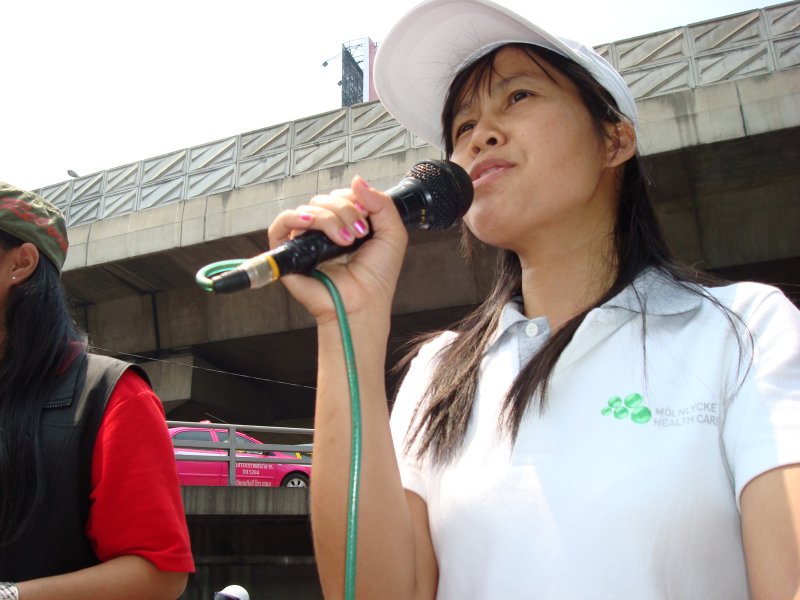Mölnlycke's workers disposable?
Mölnlycke Health Care produces single-use surgical gowns near Bangkok. Workers there were accused of an “illegal strike” and fired in September 2011. A Thai special committee for resolving labour conflicts investigated the incident. The committee concluded that no strike had taken place and that Mölnlycke ought to reemploy the workers. However, Mölnlycke went to court instead.
The management of Mölnlycke Health Care Thailand dismissed 22 union workers in September 2011 following their participation in an alleged “illegal strike”.
Mölnlycke has its headquarters in Sweden, and the Clean Clothes Campaign worked with public health institutions in Sweden and Norway who were buying medical gowns from Mölnlycke to address the dismissal of the workers.CCC Norway and the Swedish organisation Swedwatch also reached out to ethical investors and media to promote a resolution of the case. The Belgian Clean Clothes organisation AchAct worked with the workers councils within Mölnlycke Belgium to raise awareness about the case, and contacted Mölnlycke management in both Sweden and Belgium.
Violation of Thai law
In Thailand, the Industrial Relations Committee (IRC) is comprised of employers, workers and government representatives and set up specifically to resolve labour conflicts. It investigated the incident at the Mölnlycke factory near Bangkok, and concluded that no strike had taken place. The IRC stated that firing the workers was in violation of Thai law and ordered Mölnlycke to reemploy all dismissed employees.
However, Mölnlycke chose to appeal the decision in court, where mediation processes aimed at achieving conciliation were held but a review of evidence was never conducted.
In February 2013 the five remaining dismissed workers who were still campaigning were offered and accepted 2.5 years compensation. According to the local union and federations in Thailand, workers felt themselves forced to agree to the company's conditions, as they could not continue to provide for themselves or their families, such as paying for housing, without wages.
The Clean Clothes Campaign notes that Mölnlycke headquarters in Sweden has been responding quickly to letters and meetings, but that after the second response a menacing letter was sent by Mölnlycke Health Care Legal Services, based in the USA, in which firm responses were announced. An extract from the letter:
”...Further, as we are advised that Clean Clothes has attempted to intimidate at least one contractual partner of Mölnlycke in Norway, we note our surprise and unequivocal objections to these potentially unlawful tactics by Clean Clothes – particularly as they are based on incomplete knowledge and unfounded conclusions. Clean Clothes are hereby advised that Mölnlycke reserves all legal rights it may have in regard to Clean Clothes actions. We can assure you that Mölnlycke will protect its interest vigorously and that attempts by Clean Clothes or others to disparage our good reputation in the market, to interfere with contractual arrangements or to otherwise attempt to ’bully’ and intimidate Mölnlycke Healthcare will be met with a firm response.”
The Norwegian Clean Clothes Campaign approached the public health authorities there to inform them about the situation on the ground. They acted immediately and asked for a meeting with Mölnlycke representatives in Norway and at the Headquarter in Sweden. In an interview with the national newspaper Dagsavisen Ms. Grete Solli, Advisor with responsibility for CSR in South-Eastern Norway Regional Health Authority made their stand clear:
“'We have spoken to Mölnlycke and made clear that we want them to comply with the IRC's decision. If this conflict is not resolved soon, it will be particularly difficult for us to sign potential new contracts, as doubt has been raised whether they meet our requirements for the ILO's core conventions.” - Grete Solli, of the South-Eastern Norway Regional Health Authority
See also:
OECD Watch about this case
Dismissed Mölnlycke workers continue their struggle
Large public procurer in Norway publicly supports dismissed Thai workers

